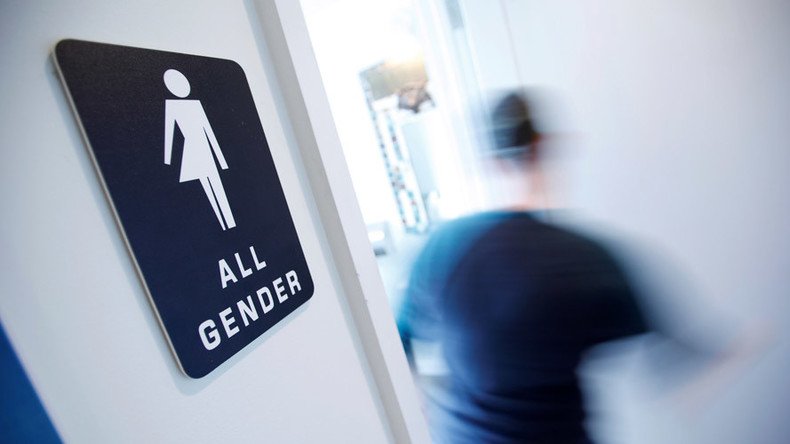University North Carolina refuses to enforce transgender ‘bathroom law’

The University of North Carolina told a federal court it won’t enforce a law requiring transgender students to use restrooms corresponding to their birth sex. The UNC is also seeking legal fees from the state Attorney General as they fight two lawsuits.
Tar Heels are named as the defendant in two separate lawsuits, alleging that the so-called “transgender bathroom law” enacted by the state in March violated civil rights protections. One suit was filed by the federal government and the other by the American Civil Liberties Union (ACLU).
North Carolina blocks local transgender anti-discrimination laws https://t.co/4JZO4cgNy7pic.twitter.com/Mz1T1OzE1O
— RT America (@RT_America) March 24, 2016
The ‘bathroom law’ requires transgender people to use restrooms corresponding with the sex on their birth certificate in public schools, universities and many other public buildings. It also excluded gender identity and sexual orientation from statewide anti-discriminatory protections. That provision has since been revised.
In a motion on Friday, UNC president Margaret Spellings said the 17-campus university based in Chapel Hill did not intend to enforce the state law, and asked the federal court to halt legal proceedings against the university system pending the outcome of a separate case on transgender rights in Virginia.
Wow: U of North Carolina tells court it won't enforce anti-transgender law and says law basically unenforceable. https://t.co/9wN4Hl2LyK
— Dominic Holden (@dominicholden) May 28, 2016
The Virginia case involves a transgender student seeking to use high school restrooms in line with his gender identity. The school board the student sued has asked for a new hearing before the full appeals court. The case hinges on a federal anti-discrimination law that is also central to the North Carolina case.
“I have no intent to exercise my authority to promulgate any guidelines or regulations that require transgender students to use the restrooms consistent with their biological sex,” wrote Spellings in her affidavit, according to The Associated Press.
Spellings had previously said she was in a difficult position caught between state and federal law directives over transgender rights.
The UNC board chair requested from North Carolina to set aside funds for private counsel, since the state has declined to represent the university in the proceedings.
“Although the Attorney General ordinarily represents the University and its official in litigation, your office has declined to provide legal representation to the University in these matters,” wrote Louis Bissette in a letter to North Carolina Attorney General Roy Cooper, according to the Washington Post. “As you can appreciate, the University is in need of representation by legal counsel in these matters so that it may continue its operations and focus on its mission of educating students and serving the people of North Carolina.”
“I am requesting that your office begin setting aside funds sufficient to pay the attorneys’ fees and expenses that the University will incur in defending these matters and work with us to ensure that the expenses are paid in full,” Bissette added.
Three other cases involving the law are pending in federal courts in North Carolina.
'Blatant overreach’: North Carolina sues DOJ over transgender bathroom law #HB2https://t.co/AWOOgZT4p9pic.twitter.com/lcRPQYkVXZ
— RT America (@RT_America) May 10, 2016
The North Carolina law was met with national protests and criticism, with supporters agreeing with the privacy protections and opponents calling it discriminatory. Governor Pat McCrory amended the controversial provision abolishing discrimination protections in mid-April, but has remained committed to restricting the use of bathrooms and locker rooms based on one’s birth sex.












